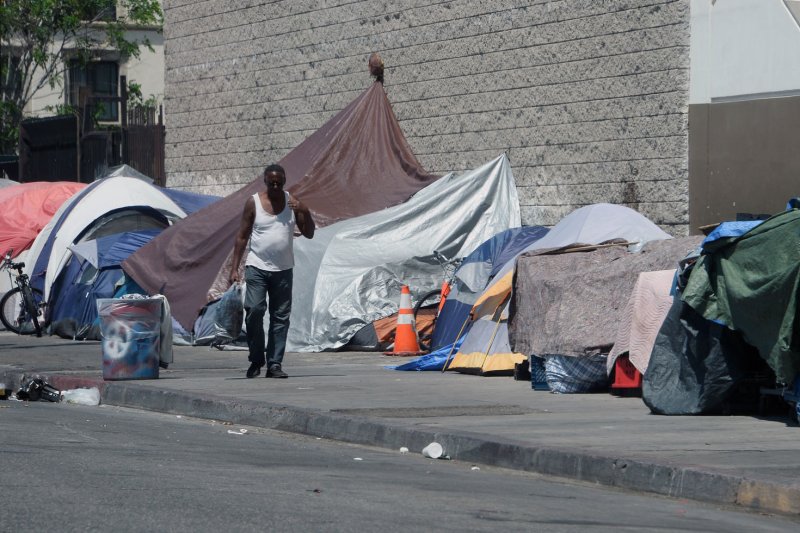Homeless encampments are seen in the Skid Row section of Los Angeles, where nine people are accused of paying homeless for signatures on petitions or voter registration forms for the 2016 and 2018 elections. Photo by Jim Ruymen/UPI |
License Photo
Nov. 21 (UPI) -- Los Angeles prosecutors have filed fraud charges against nine people they say fraudulently gathered petition signatures from homeless people in exchange for cash and cigarettes.
Los Angeles County prosecutors filed the charges, which accuse the defendants of collecting the signatures on Los Angeles' infamous Skid Row for initiatives and voter registration forms during the 2016 and 2018 elections, authorities said.
The charges say homeless were usually paid $1 or $2, but were given as many as $6 this year to give their signature for petitions. It is illegal under California law to pay for petition signatures.
The charges were filed earlier this month following a LAPD crackdown on Skid Row earlier this year, the Los Angeles Times reported.
"They paid individuals to sign the names," Deon Joseph, the lead officer on Skid Row, told the Times in September. "That's an assault on our democracy."
The charges, publicized Tuesday, include circulating a petition with false names and voter fraud by registering a fictitious and non-existent person.
Los Angeles Police Department Capt. Marc Reina said undercover officers and security camera video caught one of the defendants in the act.
The FBI is investigating the case with the Los Angeles police.
None of the homeless people who participated were charged.
Los Angeles County elections chief Dean Logan said cases of election fraud cause voters to "lose faith in the process."
If convicted, the defendants face between four and six years in prison.















